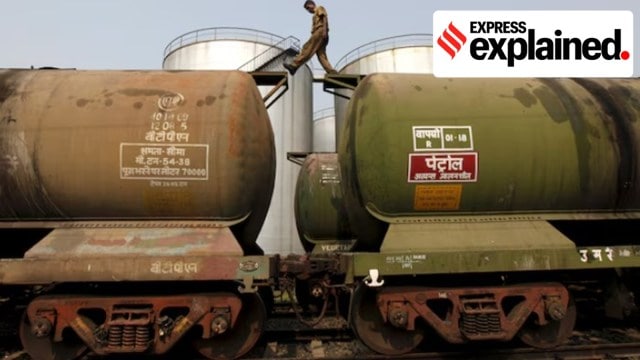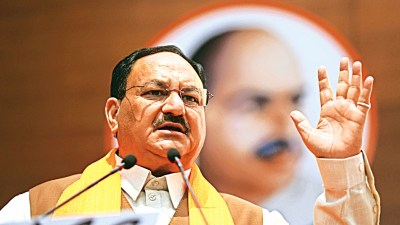
The US has imposed sanctions on Russia’s two largest oil companies — Rosneft and Lukoil — in a bid to damage Moscow’s ability to fund its war machine. This is the most aggressive action taken by Washington against Russia since US President Donald Trump assumed office in January this year.
The European Union joined the US with more economic sanctions on Russia, as it unveiled the 19th package of sanctions. The EU’s 18th sanctions package against Russia, adopted on July 18, 2025, prohibits the import of petroleum products refined from Russian crude through third countries. Put together, they threaten India’s energy security policy and imports from Russia.
The 18th sanctions package was followed by the Trump administration issuing an executive order on August 6, imposing a 50% tariffs on Indian imports — 25% reciprocal tariff since April, and another 25% as Russian penalty for importing discounted Russian oil. The move led to a chill in ties between India and the US.
Now, with Washington and the EU announcing the new set of sanctions on Thursday (October 23), this is going to force Delhi to further cut down Russian oil imports in the coming months. The economic cost that had led to a sharp increase in oil imports from Russia from about 2% to 32% has now disappeared.
Politically, Delhi has always been opposed to unilateral sanctions, since it has been subjected to similar sanctions in the past — 1974 and 1998 when it tested nuclear weapons. Delhi has always said it abides by the sanctions imposed by the UNSC, and not country-specific unilateral sanctions.
Story continues below this ad
But, in the case of Iran, it did respect the unilateral sanctions imposed by the US under Trump 1.0, when Washington asked India to bring down oil imports to zero. But that was primary sanctions, and not secondary sanctions.
Sanctions and exports control against Russia do not derive from any UNSC resolution but are being unilaterally implemented by a coalition, led primarily by the G7 (the US, UK, Canada, Japan, Italy, France and Germany) and the EU, that includes more than 30 countries around the globe which represent more than 50% of the global economy.
India is among the handful of countries, along with China, which do not support unilateral sanctions against Russia.
Russia has also adopted new ways for circumvention in response to sanctions, particularly those relating to its global trade in oil and gas. Russia has been exploiting international procurement networks and has made extensive use of a growing “shadow fleet” of tankers to transport Russian crude oil around the globe and/or circumvent the oil price cap instituted by the G7.
Story continues below this ad
As the sanctions regime against Russia has evolved, focus of efforts by the G7 countries and the EU has increasingly been on preventing sanctions evasion and closing any remaining loopholes in existing regime. Individuals and entities in third countries have become sanctions targets and measures to address Russia’s “shadow fleet”. These new sanctions are called the “secondary sanctions”.
Under international law, secondary sanctions are viewed as coercive measures that penalise third states or their entities for maintaining relations with a sanctioned actor. Unlike primary sanctions, which regulate a state’s own nationals and territory, secondary sanctions target external actors to influence their dealings with the primary target. They operate by altering access to the sanctioning state’s market or financial system, creating indirect pressure on third parties to conform to the sanctioning state’s policy objectives.
Delhi is now dealing with this double whammy of unilateral and secondary sanctions, coming from two of its closest strategic partners, the US and the EU, against another strategic partner, Russia. To deal with this, it is going to cut down oil from Russia as economic logic dictates that choice. Also, the strategic imperative of the US plays a very crucial role in that decision, sources said.








































